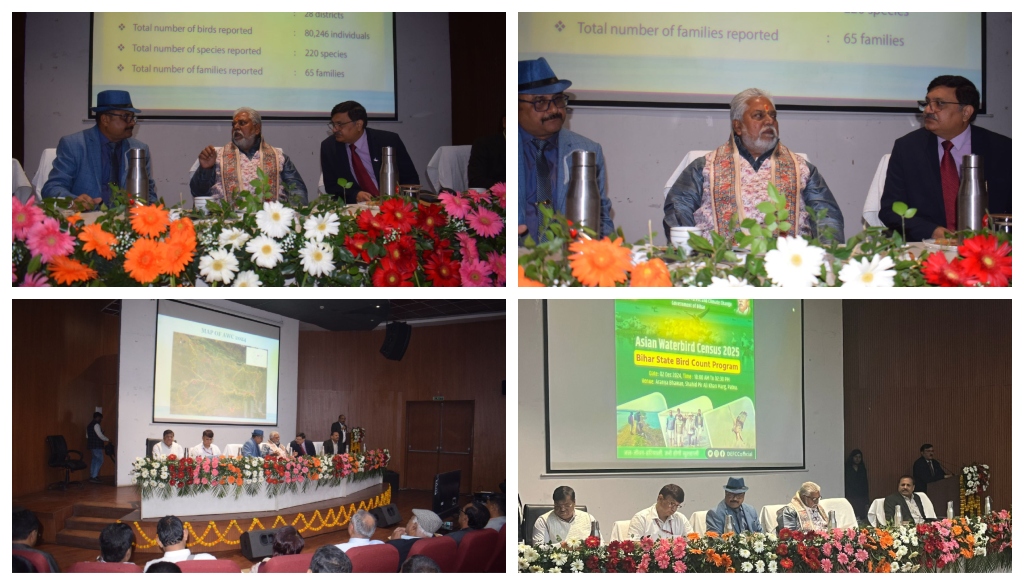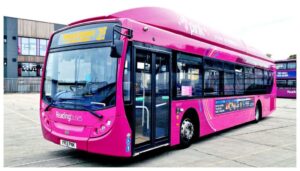Bihar Takes Major Step in Bird Conservation with Asian Waterbird Census Workshop

Chirag Gupta
Patna: The Department of Environment, Forest and Climate Change (DEF&CC), Government of Bihar, in collaboration with the Bombay Natural History Society (BNHS), organized the Asian Waterbird Census (AWC) Workshop at Aranya Bhawan, Patna. Over 100 experts, government officials, researchers, and volunteers participated in the workshop, aimed at enhancing the effectiveness of migratory bird census efforts and bolstering long-term conservation strategies for Bihar’s wetlands.
The event commenced with a welcome address by Conservator Forest Officer and State Nodal Officer of AWC, S. Sudhakar, who stressed the importance of collective efforts to protect Bihar’s biodiversity, particularly its waterbirds. Chief Wildlife Warden Bihar, Arvinder Singh, in his inaugural speech, emphasized the need for collaboration in monitoring bird populations and studying the ecological factors influencing their presence, critical for wetland conservation.
Principal Chief Conservator of Forests (HoFF), Prabhat Kumar Gupta, highlighted Bihar’s pivotal role in the Central Asian Flyway and praised the achievements of the annual waterfowl census initiated in 2022. DEF&CC Secretary, Bandana Preyashi, shared updates on the AWC programme’s progress, including the survey of 123 wetlands in three years with the involvement of over 250 volunteers, generating essential data on waterbird diversity and wetland health. She reiterated the state’s resolve to combat poaching and habitat loss. Minister of DEF&CC, Prem Kumar, lauded Bihar’s bird conservation efforts, such as the establishment of the Greater Adjutant Rescue and Rehabilitation Centre and the Bird Ringing and Monitoring Station in Bhagalpur.
The workshop featured a technical session showcasing achievements under AWC in Bihar since 2022. Experts presented findings on waterfowl monitoring and wetland health assessments, highlighting the importance of collaboration among government bodies, NGOs, volunteers, and local communities. Citizen science was identified as a vital tool to amplify conservation efforts, and participants actively exchanged insights and experiences, emphasizing the significance of teamwork.
Concluding with an interactive session, participants identified actionable steps to expand survey coverage, encourage volunteer participation, and strengthen conservation policies. The workshop provided a vital networking platform, fostering alignment among stakeholders and reaffirming a shared commitment to preserving Bihar’s rich biodiversity and protecting its wetlands for future generations.





